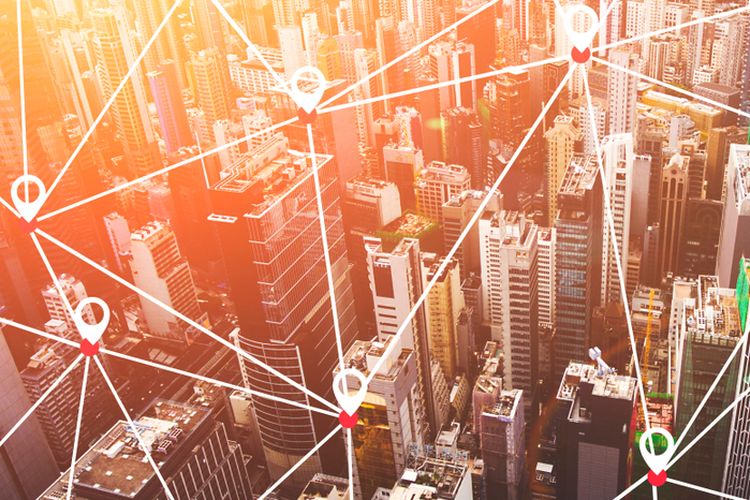Exploring the Development of Technology-Based Urbanization – Urbanization is a phenomenon that has affected human life for centuries. However, urbanization also brings major challenges such as traffic congestion, air pollution and social inequality. To overcome this challenge, technology has become the main driver in forming smart cities. In this article, we will explore how technology has shaped modern urbanization and its impact on the future of smart cities.

Smart Connectivity and Infrastructure
One of the main pillars of a smart city is high connectivity and smart infrastructure. The development of telecommunications technology, especially 5G, has brought super-fast and stable internet connections to cities. This enables cloud-based services and applications, as well as the Internet of Things (IoT) to function optimally. Smart infrastructure also involves using sensors and smart devices to gather data about cities, such as traffic density, air quality and energy usage. This data is used to optimize city operations, reduce carbon emissions, and increase comfort for residents.
Smart and Environmentally Friendly Transportation
Technology-based urbanization presents smart and environmentally friendly transportation as a solution to congestion and air pollution problems. Smartphone-based applications, such as Uber and Lyft, have changed the way people move around in cities. In addition, autonomous technology provides driverless vehicles that can reduce the number of accidents and improve transportation efficiency. In addition, sensor-based technology is used to monitor traffic and improve traffic light synchronization, thereby reducing waiting times and congestion.
Energy Efficient and Environmentally Friendly
Smart cities seek to create energy independence and more efficient use of resources. The use of solar energy and other energy capture technologies is increasingly common in modern cities. In addition, smart grids and energy consumption management technologies have helped reduce energy wastage and ensure fair distribution. By combining clean energy technologies and smart energy management systems, cities can move towards environmentally friendly and sustainable sources of energy.
More Efficient Waste Management
In smart cities, technology is also used to optimize waste management. Intelligent sensors are used to monitor and manage waste piles in containers, ensuring that waste is transported only when it is really needed. In addition, waste segregation and recycling technologies are increasingly being developed to reduce the amount of waste that ends up in landfills. With more efficient waste management, cities can reduce their environmental impact and achieve sustainability goals.
Citizen Participation and Government Transparency
Technology also plays an important role in involving citizens in city decision-making. Online applications and platforms allow residents to participate in surveys, provide input, and report problems in their neighborhood. In addition, government transparency is also enhanced through the use of technology to provide data and information that is easily accessible to the public. Thus, smart cities are not only supported by technology, but also involve and pay attention to the aspirations of citizens.
Data Security and Privacy
Along with the wider use of technology, data security and privacy is a top priority. Cryptographic technology and high-level security systems are implemented to protect citizens’ personal data and city infrastructure from cyber threats. In addition, implementing clear regulations and policies regarding the use of data is essential to ensure that technology is used ethically and responsibly.
The Future of Smart Cities
The development of technology-based urbanization offers great potential to create cities that are more sustainable, efficient and environmentally friendly. However, there are also a number of challenges that need to be overcome, including the availability of adequate funds and infrastructure, as well as the active involvement of citizens in the city’s development process. With the collaboration between government, the private sector, and communities, the future of smart cities can be better realized, creating a better environment in which to live and work for all its residents.